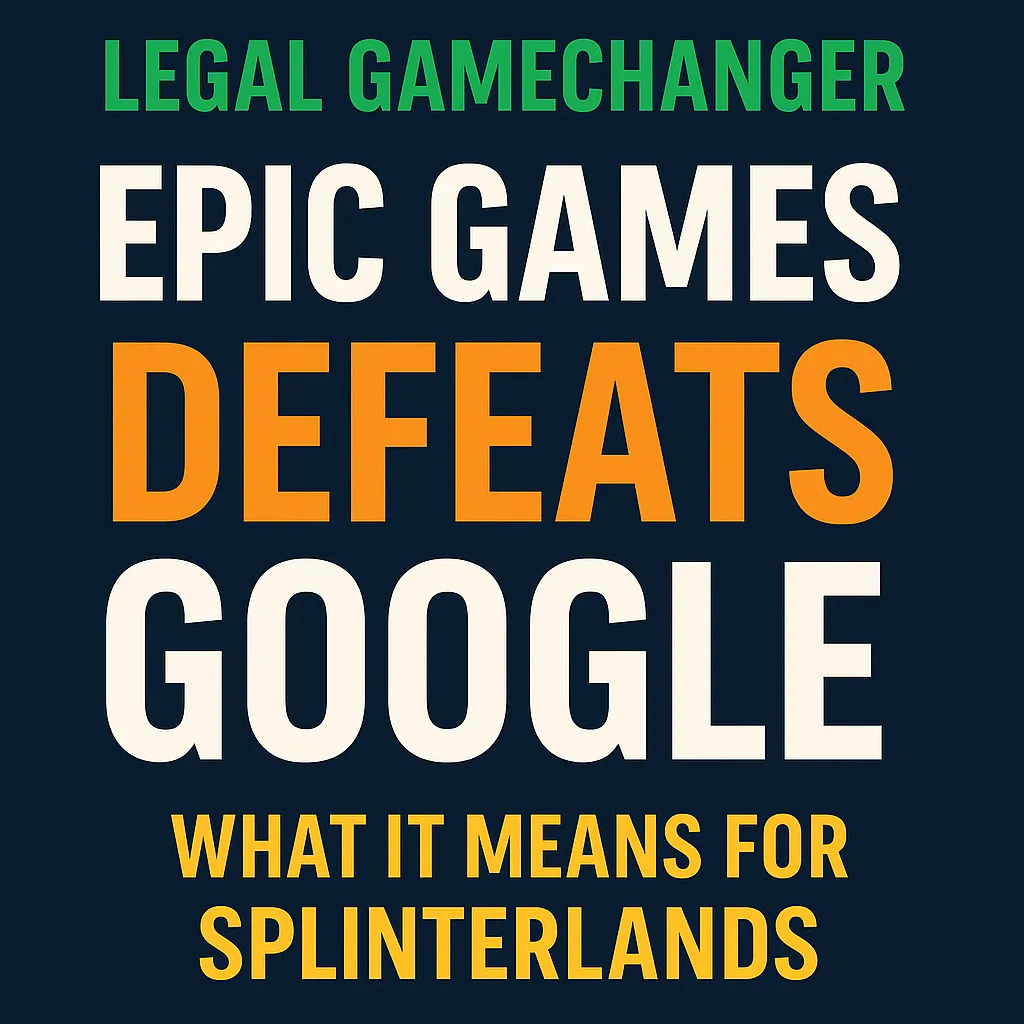
A recent and potentially transformative U.S. federal court decision — Epic Games, Inc. v. Google LLC, No. 3:20-cv-05671-JD — has ruled that Google’s Play Store policies constitute an illegal monopoly. The jury found that Google abused its dominant position by limiting alternative app distribution and mandating the use of its proprietary billing system, thereby unlawfully restricting competition.
⚖️ Why this matters for Splinterlands and mobile gaming apps more broadly:
This ruling reinforces a legal principle that could significantly impact the mobile app ecosystem: platform holders cannot exploit their dominance to exclude competitors or impose discriminatory terms. While the decision specifically concerns Google and Android, the logic behind it is clearly extendable to Apple’s App Store, where similarly restrictive conditions have long been criticized — particularly regarding NFT integration, external payments, and Web3 features.
📲 What Splinterlands should consider:
In light of this ruling, it is both reasonable and timely for the Splinterlands team to formally request publication on the Apple App Store. Should Apple reject the request or impose disproportionate commercial or technical constraints, the team should reserve the right to conduct a legal assessment. This would help determine whether Apple's behavior could be challenged under antitrust principles, especially if access is denied without clear, fair, and objective justification.
The Epic v. Google decision provides legal and strategic ammunition for game developers to confront structural obstacles in the mobile ecosystem — and Splinterlands may have every reason to press forward while the legal and regulatory landscape is evolving in their favor.

🖊️ Post co-authored by Geppone & Meredorn
📌 Disclaimer: The views expressed here are preliminary and intended for general discussion purposes only. AI was used exclusively for generating the accompanying images.